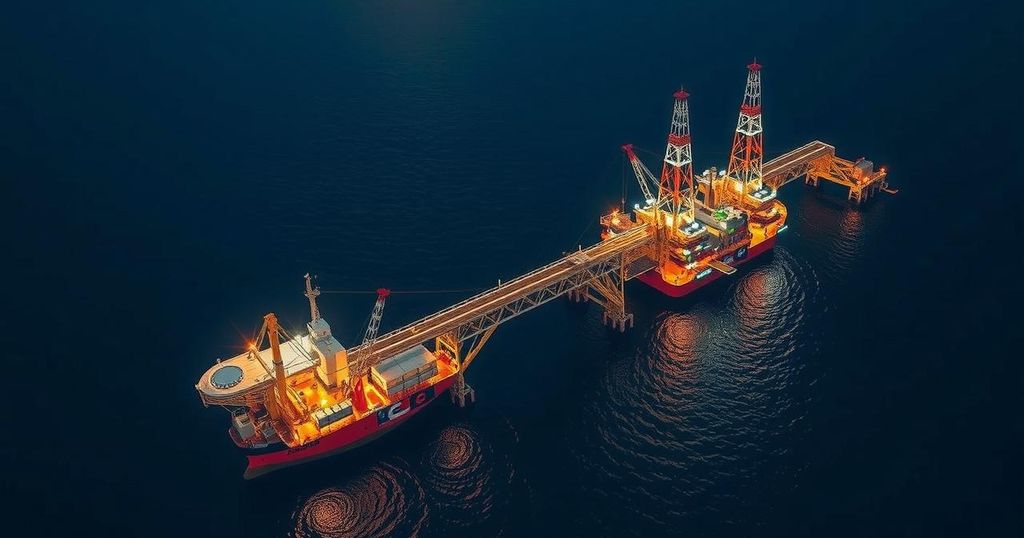Brazil and Argentina have signed an MOU to explore natural gas exports from Argentina’s Vaca Muerta to Brazil, aiming for up to 30 million cubic metres per day by 2030. The initiative is led by YPF and supported by investments from Vista Energy to enhance production and infrastructure.
Brazil and Argentina have signed a memorandum of understanding (MOU) aimed at developing the necessary infrastructure for natural gas exports from Argentina’s Vaca Muerta shale formation to Brazil. This agreement is particularly pertinent given Brazil’s increasing domestic gas demand, with projections indicating potential imports of up to 30 million cubic metres per day (mcm/d) by 2030. The MOU includes the establishment of a working group tasked with determining the appropriate measures for facilitating gas supply from Argentina, focusing predominantly on the Vaca Muerta formation, recognized as the second largest shale gas reserve globally. Leading this initiative is Argentina’s state oil company, YPF, which is committed to advancing exploration and production in Vaca Muerta, with the vision of positioning Argentina as a significant energy exporter. The working group will explore various routes for gas transportation, including reversing Bolivia’s pipeline flow and potential pathways through Paraguay and Uruguay. Additionally, a direct connection at the Uruguaiana border between Brazil and Argentina is also under consideration. Brazil, which is the largest crude oil producer in Latin America, faces challenges in meeting its domestic gas requirements, highlighting the critical nature of this initiative for President Luiz Inacio Lula da Silva. To support gas exports from Vaca Muerta, Vista Energy has announced plans for an investment of approximately $1.1 billion (21.97 billion pesos) this year to enhance production capabilities and reduce operational costs.
The agreement between Brazil and Argentina comes at a time when Brazil is seeking to increase its natural gas supply to meet domestic consumption needs. The Vaca Muerta formation is significant not only for Argentina but also for the broader energy landscape in Latin America, given its potential to contribute substantially to regional energy security. With Brazil’s gas output not keeping pace with demand, collaboration with Argentina could offer a solution to bridge this gap, ensuring stable energy supplies for Brazil.
In summary, the recent MOU between Brazil and Argentina represents a strategic partnership aimed at enhancing natural gas exports from the Vaca Muerta formation to Brazil. This collaboration aims to address Brazil’s increasing gas demand while positioning Argentina as a major energy exporter. With significant investments planned and various routes for gas transportation under review, the agreement has the potential to reshape the energy dynamics of the region significantly.
Original Source: www.offshore-technology.com






